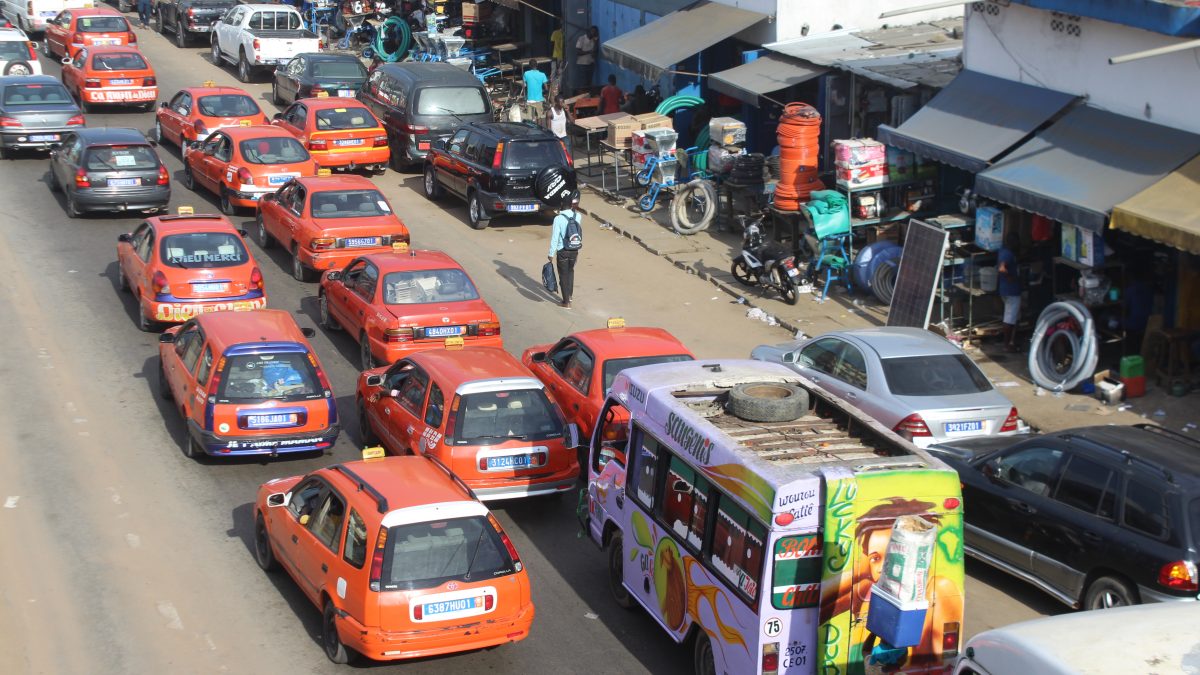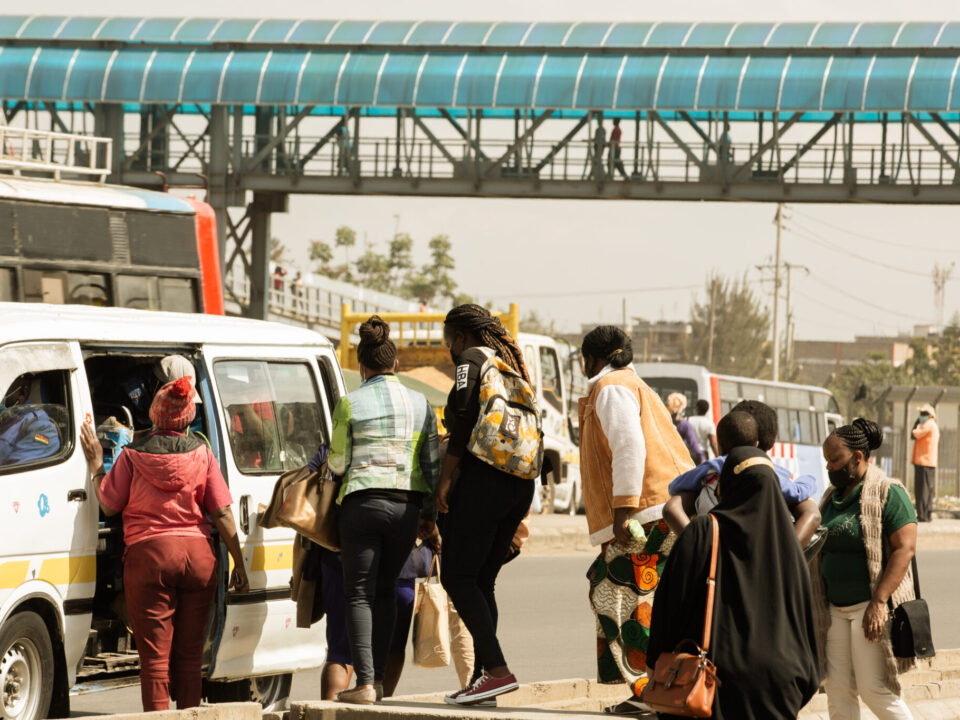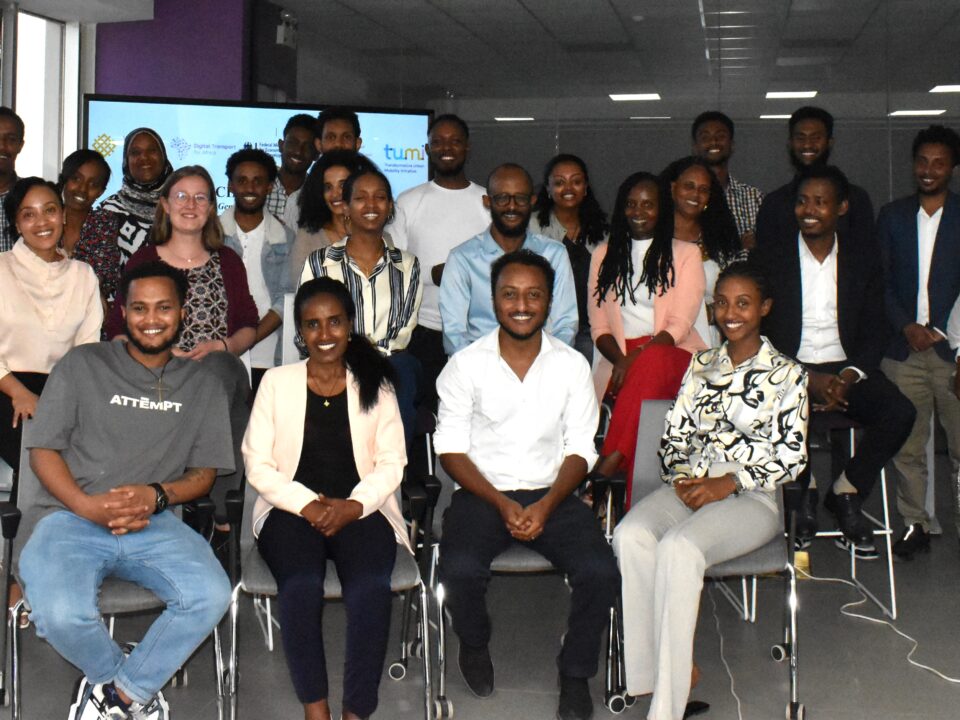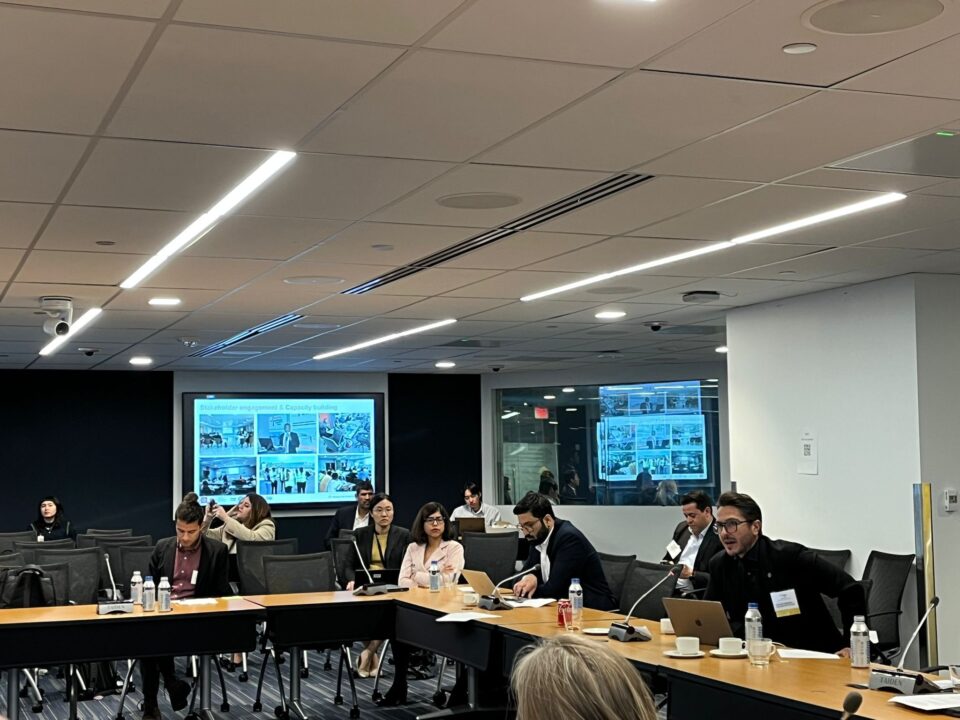
Building your City’s Mobile and Web-based Journey Planner
8 August 2019
Mapping a transport network with OpenStreetMap and GTFS
6 November 2019Abidjan’s woro woro taxi system.
The French Development Agency (AFD) is a funder that finances, through loans and / or grants, sustainable mobility projects in developing countries. AFD’s involvement with DigitalTransport4Africa reflects AFD’s belief that emerging “new” mobility technology represents new opportunities for transforming the transportation sector, especially for privately-owned paratransit minibuses that provide transit for the majority of African urbanites.
Like other major donors, AFD does not have the mission, the strike force nor the agility of venture capitalists to finance innovative start-up players. AFD traditionally finances long-term infrastructure projects with public actors. The challenge for AFD is to help local public actors think about civic action in the digital age, namely by supporting the production and maintenance of a “digital commons.” The first step is to target the production of transport data “infrastructure,” allowing public authorities to visualize their transport networks and third parties to innovate sustainable mobility solutions. The philosophy is to be able to participate in the development of a shared knowledge by privileging the openness of the data and the production of tools in open-source code.
In this context, AFD is cooperating with the Ivory Coast’s Ministry of Transport to map the formal and informal transport of Abidjan, the country’s growing capital. The ministry wished to have an up-to-date map of the network to prepare for the arrival of the several important projects in the upcoming Abidjan Urban Mobility Plan, including—
- Implementing the East-West Bus Rapid transit (BRT) corridor
- Strengthening Abidjan’s public transport authority and restructuring of the feeder system to mass-transit lines
- Organizing paratransit sector and last-mile accessibility. The bursting of the transport supply into a multitude of paratransit operators plus transport authorities’ lack of knowledge regarding these carriers leads to congestion, pollution, as well as a lack of passenger information that affect the efficiency of the system.
AFD helped produce Terms of Reference for this mapping project. These Terms of Reference are intended to specify the demand for a map of the paratransit network operating in Abidjan. They draw on recent exercises and experiences (e.g., Johannesburg, Nairobi, Cairo, Accra), while allowing room for adopting the project to the specific needs of the city. The project will create open, reusable datasets under the ad hoc OdBL license, to be made available on the DT4A Resource Center. These newly created datasets will follow the GTFS format, allowing for increased precision of the location of transit stops and frequency at different times of the day, etc. In addition, these specifications allow for feeding into the OpenStreetMap (OSM) platform and encourage association with the local OSM community in the process. The underlying objective is for local communities to participate through the OSM platform, updating the geographical data on the transport supply. It is also a good way to strengthen the dialogue between civil society and authorities.
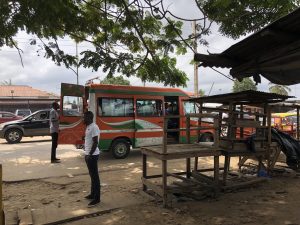
A minibus taxi, or gbaka, in Abidjan. Photo courtesy of author.
In order to encourage the dissemination of good practices and the development of quality transit data in African cities, AFD standardized the specifications underlined in the ToR so that they could be applied to other major African cities. The ToR is a reusable and adaptable tool for local transport authorities. By using them, they could hire providers for collecting, generating and processing urban transport data in large African cities, which will enrich the digital commons. The DT4A community is also available for any sharing of experience or information.
About the Author
Antoine Chevre is a Senior Transport Specialist in the Mobility Division of the French Agency of Development (AFD). Since joining AFD in 2016, he’s led transport and digital strategy implementation. In November 2017, he organized, along with many partners including Accra Mobility, OpenStreetMap and Digital Matatus, the event, Towards an Open and Collaborative Digital Data Platform to improve African Urban Public Transport and the workshop, Digital Transport for Africa – An Open Resource Center for Improved Urban Mobility in November 2018.
He wrote those terms of reference with Tom Leroy and Pauline Baraban, two AFD interns working on transport and digital strategy.
